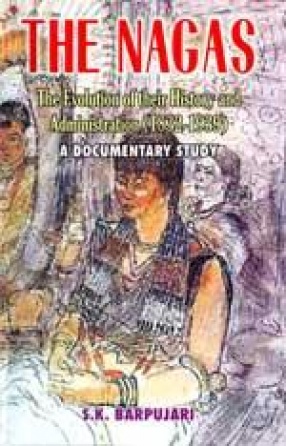Exclusive in spirit, independent in outlook, the valiant Nagas of North-East India could not tolerate foreigner’s interference in their internal affairs, or encroachment on their primordial rights. Security measures brought the British authorities in Assam in contact with the Nagas and in the course of around half a century they found themselves in the position of virtual conquerors of the Naga Hills. But this position was gained, not without a challenges from the Nagas. In fact from the very beginning, the British-Naga relationship was marked by hostility and unfriendliness. The British fought and punished the Nagas, but the latter were not slow to accept the challenge; they were an equal match to the white men. There was however, a silver-lining amidst these challenges and counter-challenges. The British finally befriended the Nagas and brought peace and order among them by following different policies at different times. The methods were directed by the exigencies of the situation, and the character and civilization of the various tribes. The American Baptist Mission worked closely with the British administration in civilizing and reclaiming the Nagas from their primitive lives. As a result head-hunting within the administered boundary quickly disappeared. Inter-village feuds came to an end and the Nagas settled down to somewhat more peaceful living. Thus the Nagas entertained an attitude of confidence and goodwill towards the British rulers till the end of World War II. The present in-depth and documentary study aims at providing an analytical basis of British relations with the Nagas. Undoubtedly essential reading for all who wish to have background knowledge of the Nagas whose legendary virility and sincerity are beyond question. Now the focus of the international news media, the continuing peace talks with the Government of India are being closely monitored by other insurgent groups of the region and political analysts.
The Nagas: The Evolution of their History and Administration, 1832-1939
$29.70
$33.00
In stock
Free & Quick Delivery Worldwide
All orders amounting to US$ 50 or more qualify for Free Delivery Worldwide. For orders less than US$ 50, we offer Standard Delivery at $14 per book.
ABOUT THE AUTHOR S.K. Barpujari
Dr. S.K. Barpujari, M.A., is a product of the Universities of Calcutta and Dacca of the pre-partition days. For a little over three decades he taught history in the Collegiate and University levels, till his retirement in 1981 as Reeder in Modern History of the University of Gauhati. As his area of research and specialization was tribal studies of North East India, he enrolled himself for his Ph.D. degree on a particular period of Naga history under the supervision of Prof. (Dr.) A.C. Banerjee, Centenary Professor of International Relations, Calcutta University and the degree of the Doctor of Philosophy was conferred on him in 1970 on his thesis “Anglo-Naga Relations, 1835-1890†by the Gauhati University. Dr. Barpujari was one of the Editors of the Political History of Assam, Vol. 1, published by the Government of Assam in 1977. He also contributed two important chapters in The Comprehensive History of Assam, Vol. IV and V published by the Publication Board, Assam. In both these projects he teamed with his elder brother the late Prof. H.K. Barpujari, the doyen of historians of North-East India, whose last book North East India: Problems, Policies and Prospects recently won the first Srikant Dutt Memorial Award for the best book on North-East India. Dr. S.K. Barpujari was Chief Editor of the book History of the Dimasas (from the earliest times to 1896 A.D.) published in 1997. Besides contributing about forty original papers on subjects of regional history, he has been actively associated with several learned bodies, such as Indian History Congress, Indian Council of Historical Research, Indian Institute of Public Administration, North East India Council for Social Science Research and North East India History Association.
reviews
0 in total
Review by Anonymous
Be the first to review “The Nagas: The Evolution of their History and Administration, 1832-1939” Cancel reply
You must be logged in to post a review.
Bibliographic information
Title
The Nagas: The Evolution of their History and Administration, 1832-1939
Author
Edition
1st ed.
Publisher
ISBN
8187502703
Length
xiv+298p., Tables; Appendices; Notes; Maps; 23cm.
Subjects
more by S.K. Barpujari see more
similar bookssee more
Media Occupations & Professionals: Guidelines for Career Opportunities
The present book is devised ...
$47.70
$53.00





There are no reviews yet.